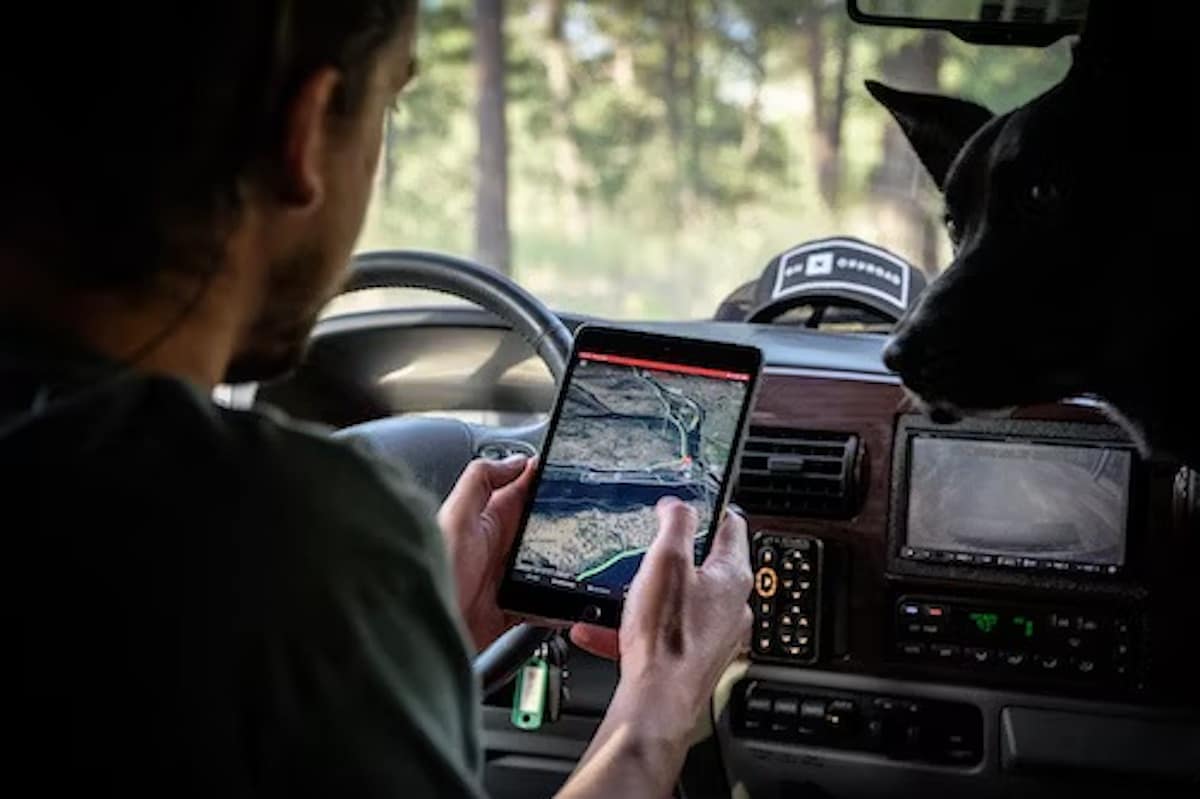Table of Contents
The term “fleet management” refers to managing organizational operations via the GPS satellite network to ensure fleet safety. Fleet managers employ location tracking to collect fleet data and run it through complex algorithms to assure the security of a company’s vehicles and assets. Because mobile fleet management contains so many moving parts and variables, a reliable GPS fleet monitoring system is critical for efficient and effective operations.
Let’s take a closer look at what a fleet management solution is and how GPS fleet monitoring may help a company optimize vehicles, from real-time traffic data to being able to track your fleets’ every move!
What Is A GPS Fleet Tracking System?
Businesses use fleet GPS tracking as an onboard management system to monitor the behavior of their assets and workers as they travel through the supply chain. GPS tracking technologies give fleet managers near real-time visibility. As a result, a simple dashboard enables quick access to various shipping data points. Initially, drivers communicated with their bosses and co-workers via radios and phones. However, cell phones and tablets are rapidly being utilized for the majority of communication these days.
For instance, a driver may leave the loading dock early in the morning and contact shipping management throughout the day. GPS tracking allows managers to monitor progress. They may also provide advice and updates on how to make your delivery go more quickly and safely.
Benefits Of GPS Fleet Tracking for Your Business
Optimize Routing
Fleet managers may find it easier to manage driver time and trips properly if they can access recent and previous route data. GPS tracking software like RAM tracking integrates GPS data with real-time mapping data and can provide real-time traffic and road condition information and actual fleet location. This allows dispatchers to redirect trucks more quickly and respond to changing situations.
Another benefit of using a GPS vehicle monitoring system is the data it can provide on journey history. Trip history data analysis can also identify patterns and lead to efficiency improvements, such as avoiding a specific portion of the road at certain times of the day.
Minimize Fuel Costs
Fuel expenditures is almost 60% of operational cost in transportation companies. Fleet owners can learn when and how their cars are being used by using GPS tracking. Inadequate driving practices including abrupt acceleration and speeding can reduce fuel economy and raise costs.
Unauthorized vehicle use can also raise fuel expenses dramatically. A GPS tracking system can notify management of illicit use through time-of-use limitations and calendar templates.
You may also cut gasoline costs by ensuring drivers take the most direct routes to work. With access to route planning and dispatching tools, your team can ensure that jobs are assigned to the closest vehicle, that they are traveling on the most efficient routes, and that they are using the least amount of gasoline. Another way to cut cost is to use fuel loyalty cards.
Lower Operational Costs
Organizations may make better-informed business decisions and reduce operating costs by having real-time access to the data that matters most.
Fast access to data enables businesses to identify issues as soon as possible and put solutions in place to cut costs that would have been incurred if the issue had persisted for a longer period of time.
GPS trackers can help to digitize procedures and streamline data collection, ensuring that the correct information is collected and kept in a central area accessible to all team members. Fleets can expedite administrative operations such as pre-trip inspections, job dispatch, and proof of delivery by digitizing processes such as pre-trip inspections, job dispatch, and proof of delivery.
Theft Recovery
Your company’s fleet of vehicles and equipment is one of its most valuable assets. Therefore, it shouldn’t be surprising that one of the main benefits of GPS tracking is theft recovery.
When you install GPS monitoring on your vehicles and other assets, your firm can easily monitor their whereabouts, create calendar templates for expected use, and instantly discover odd or unauthorized use.
Receive quick notifications when a vehicle or equipment operates outside its designated location or operating hours. If a car is stolen, GPS fleet tracking can assist authorities in recovering the asset, lowering the cost of replacement and insurance.
Increased Productivity
Productivity improvements help you save time and money. To guarantee drivers are more productive, businesses can utilize a GPS fleet tracking system to monitor time spent in loading zones, on job sites, and at work. Businesses can also reduce waste by directing the closest truck to a job.
Another strategy to boost efficiency is to digitize critical workflows. Fleets may expedite payroll, billing, inventory, and other back-office activities using proof-of-delivery and bespoke forms, including digital signature capture.
Inventory Management
GPS equipment tracking can assist you in keeping track of inventory regardless of where it is located. You can also save crucial information about your equipment, such as the brand, kind, date of purchase, present location and movements, and licensing and servicing information. Automating data capture eliminates the necessity for manual data entry, lowering the possibility of errors.
Significantly, all of your equipment’s data is prepared for auditors when an audit is necessary, simplifying the process for everyone involved. Furthermore, you can make the information available online, giving those who require it immediate access.
Improved Safety
Without a doubt, the safety of your drivers is a major priority for your company. This begins with well-maintained automobiles, but it should also include monitoring driver behavior and ensuring that safe driving procedures are followed.
Most fleet-tracking companies feature digital maintenance systems that allow you to build maintenance schedules with automatic alerts based on odometer readings or planned repairs. You can also develop digital processes for inspections and maintenance activities that allow your drivers and maintenance teams to submit defects that can be corrected immediately.
Most GPS trackers include accelerometers, which can warn drivers and managers of patterns of poor driving behavior, such as hard braking, acceleration, cornering, and speeding. With AI-enabled dashcams, fleet managers may gain even more insight into inattentive driving, tailgating, and red-light violations.
Fleets can utilize this data to build incentive and recognition programs that praise the top drivers while encouraging others to perform better.
Bottomline
GPS vehicle monitoring systems have proven useful tools for fleet managers and small business owners relying on fleet vehicles to run their businesses. GPS trackers and a strong GPS provide various advantages, including improved fleet management, higher productivity and efficiency, increased security and theft prevention, compliance and safety adherence, integration with other systems, and cost savings. Small firms can use GPS monitoring systems to improve fleet management, make data-driven choices, and boost overall business performance.
Small businesses can receive real-time insight into their fleet vehicles using the best GPS tracking systems, allowing for improved administration and control. Fleet managers can track vehicle whereabouts, routes, and driver behavior, which leads to better route planning, dispatching, and resource allocation. This oversight guarantees that organizations can efficiently satisfy client expectations, streamline delivery routes, and cut operational expenses.
Feature Image source





